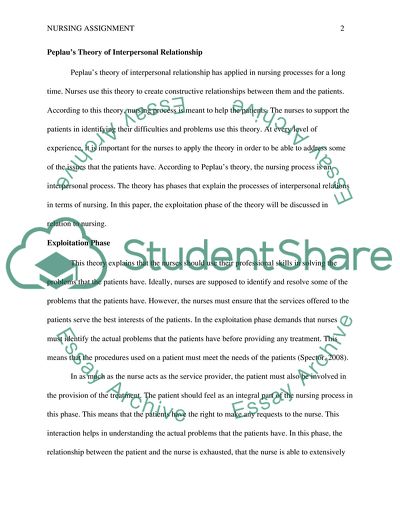Cite this document
(Assignment Example | Topics and Well Written Essays - 1000 words - 54, n.d.)
Assignment Example | Topics and Well Written Essays - 1000 words - 54. https://studentshare.org/nursing/1848530-the-application-of-peplaus-theory-of-interpersonal-relationship-in-nursing
Assignment Example | Topics and Well Written Essays - 1000 words - 54. https://studentshare.org/nursing/1848530-the-application-of-peplaus-theory-of-interpersonal-relationship-in-nursing
(Assignment Example | Topics and Well Written Essays - 1000 Words - 54)
Assignment Example | Topics and Well Written Essays - 1000 Words - 54. https://studentshare.org/nursing/1848530-the-application-of-peplaus-theory-of-interpersonal-relationship-in-nursing.
Assignment Example | Topics and Well Written Essays - 1000 Words - 54. https://studentshare.org/nursing/1848530-the-application-of-peplaus-theory-of-interpersonal-relationship-in-nursing.
“Assignment Example | Topics and Well Written Essays - 1000 Words - 54”. https://studentshare.org/nursing/1848530-the-application-of-peplaus-theory-of-interpersonal-relationship-in-nursing.


